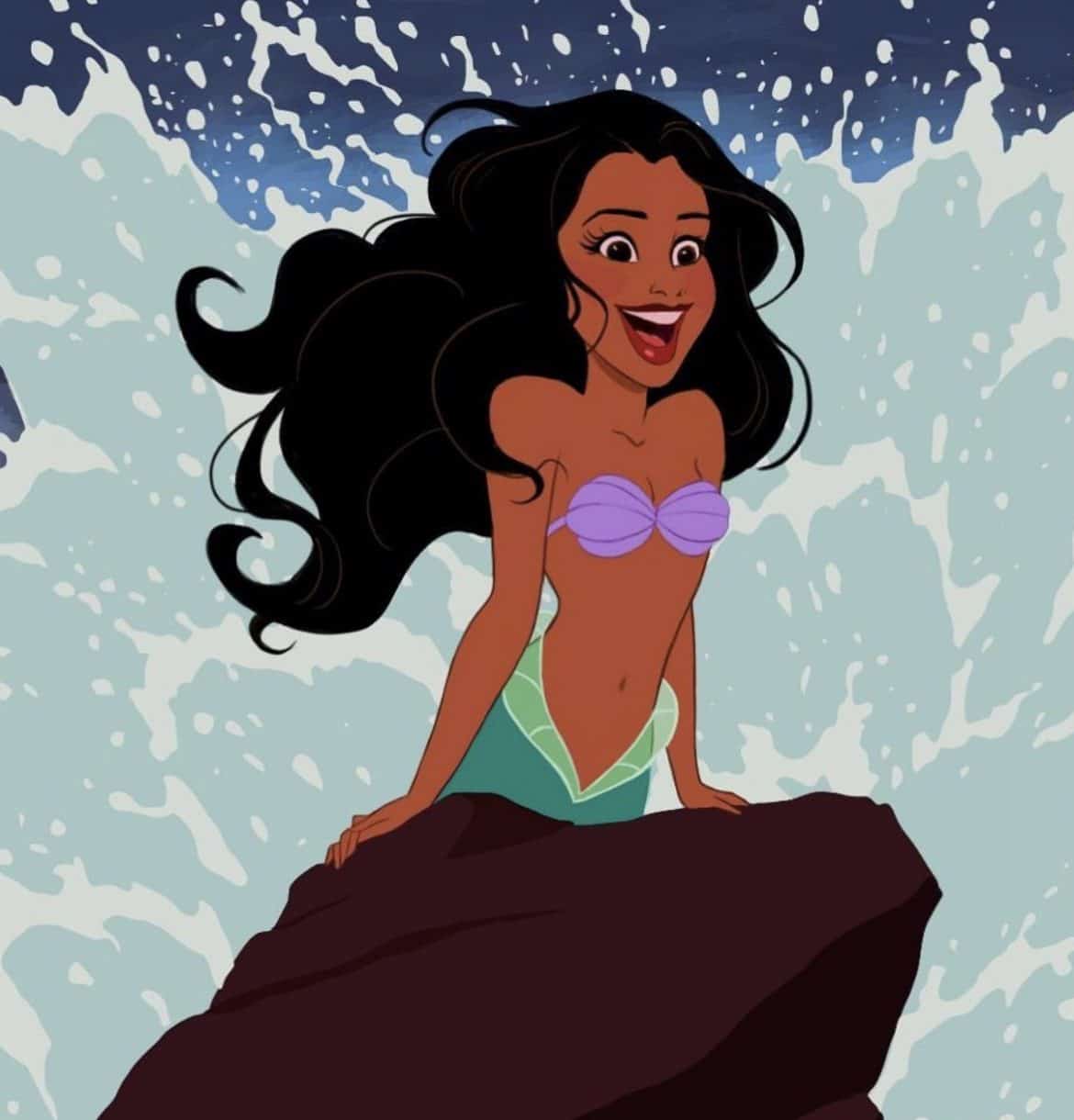Photo credit: Instagram / @chloexhalle
I’ve got to be honest.
I’m not a Disney kid.
I didn’t grow up watching a lot of cartoons and kids movies because mine was a music house, not a TV house. I could sooner run down the entire Temptations discography than I could tell you the whole plot behind The Little Mermaid. Wasn’t a movie person then, not a movie person now, to my kids’ dismay.
But my ears definitely perked up when I heard that Halle Bailey, half of the group Chloe x Halle, will be playing the lead role of the traditionally red haired, blue eyed, pale skinned Ariel. It made me feel the same way I felt when, in the movie Home, Tip’s mom was trying to describe her lost daughter, and she said—and I’ll never forget it—“She has big green eyes and beautiful brown skin.” I openly wept. What a joy it must be to grow up in a world that not only acknowledges your existence, but calls it beautiful, too.
View this post on Instagram
I gave a quick scan to social media—why, I do not know—and saw people laughing and snarking the idea of a Black Ariel, because of some weird argument about melanin not being activated if the sun can’t get through the water (which, what in the hot unholy pseudoscientific hell kind of argument is that) or some other such nonsense. An even more ridiculous argument was that Halle was somehow unattractive, too unattractive to be presented as the ever-gorgeous Ariel, with her flowing hair and giant doe eyes.
As if Halle has neither, or something, but I digress.
The most ridiculous argument, however, was the idea that people were somehow rejecting this casting choice because it was a marketing ploy, intended to appeal to this newfangled ~liberal~ order where we actually represent non-white people in the stuff we do.
If you think back, the same thing is said endlessly about literally everything done that doesn’t fixate on white, straight, Anglo-Saxon, Protestant people. Everything that gives even so much as a passing mention to Black people, other people of color, queer people, or even—shock and awe—trans people, is written off as a “marketing ploy.”
I have a counter-argument: everything is a marketing ploy. Long-haired, blue eyed princesses were and still are a marketing ploy—the kind that aligned beautifully with a beauty industry adept at selling you every product you needed to look and feel like a princess.
A film studio choosing to appeal to your desire to see white princesses was marketing, too, not a show of respect for some dominant, superior—dare I say it, supreme—social order.
We’re seeing this kind of conversation a lot more nowadays, and it’s shocking to me that people would more swiftly call me a cynic than call this what it always was and always will be: this is the thing that anti-diversity advocates are railing against.
There was always one identity deserving of praising, and all the others were represented by way of ‘funny,’ degrading, and demeaning stereotypes. There was no nuance to the representation of black characters—we were ne’er do well, lazy crows; pickaninnies; and mammies—or Native Americans—your beloved “Tonto,” which translates to several variations of “stupid”— or Chinese people, for that matter. No, nuance was exclusively reserved for white characters.
It was gross. It is still gross. And your beloved memories of growing up watching it don’t change that. I openly question the upbringing of anyone who can look back on this without cringing and laugh.
Pretending that media does anything besides turn a profit is something between naïveté and narcissism. Disney was not honoring some sacred social order by giving you decades of nothing but white princesses. It was marketing to an openly, outwardly racist society that now has the modern privilege of sharing its racism in secret Facebook groups full of similarly-raised monsters. The same kinds of monsters who are sad and angry that theirs is not the only dollar who spends freely, the same kinds of monsters who believe making America great again means returning to a world where the only dollar community worth catering to is a white one, and believe the best way to maintain that order is to disenfranchise as many others as possible.
So, yeah—it’s a marketing ploy. And thank goodness. I’m okay with another story where the monsters don’t win.

